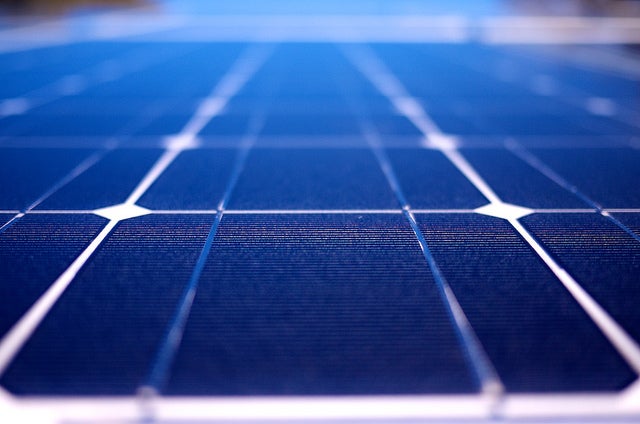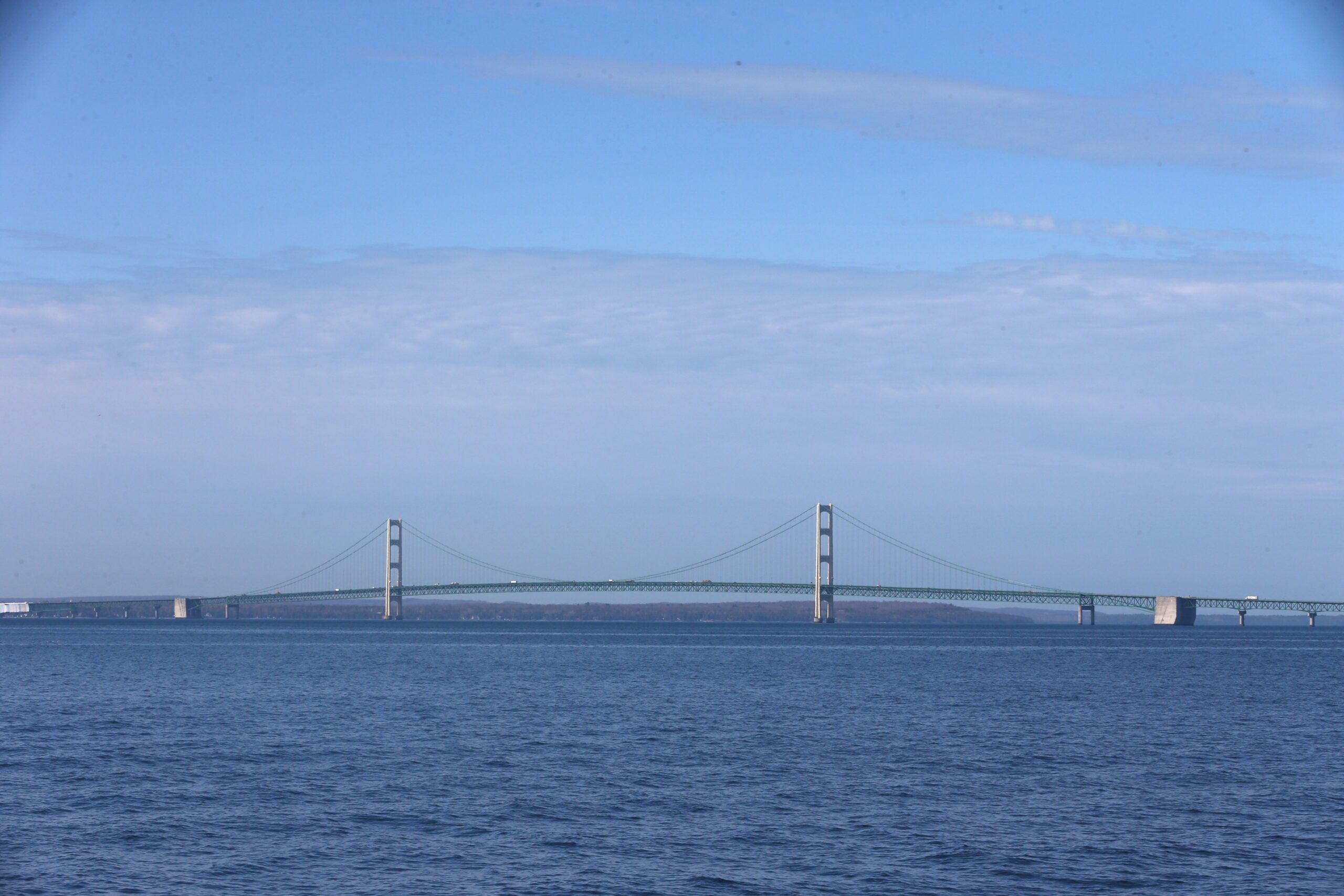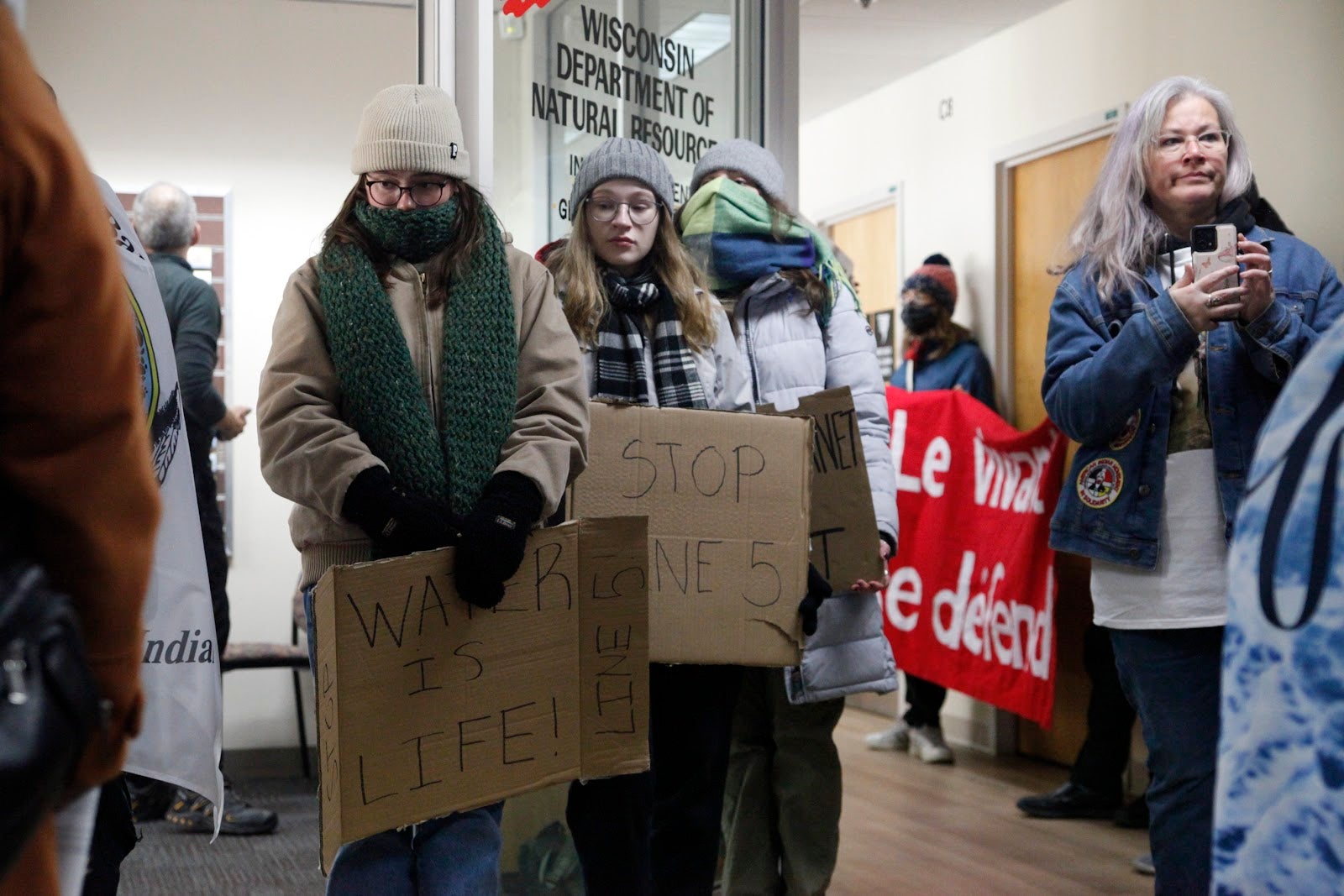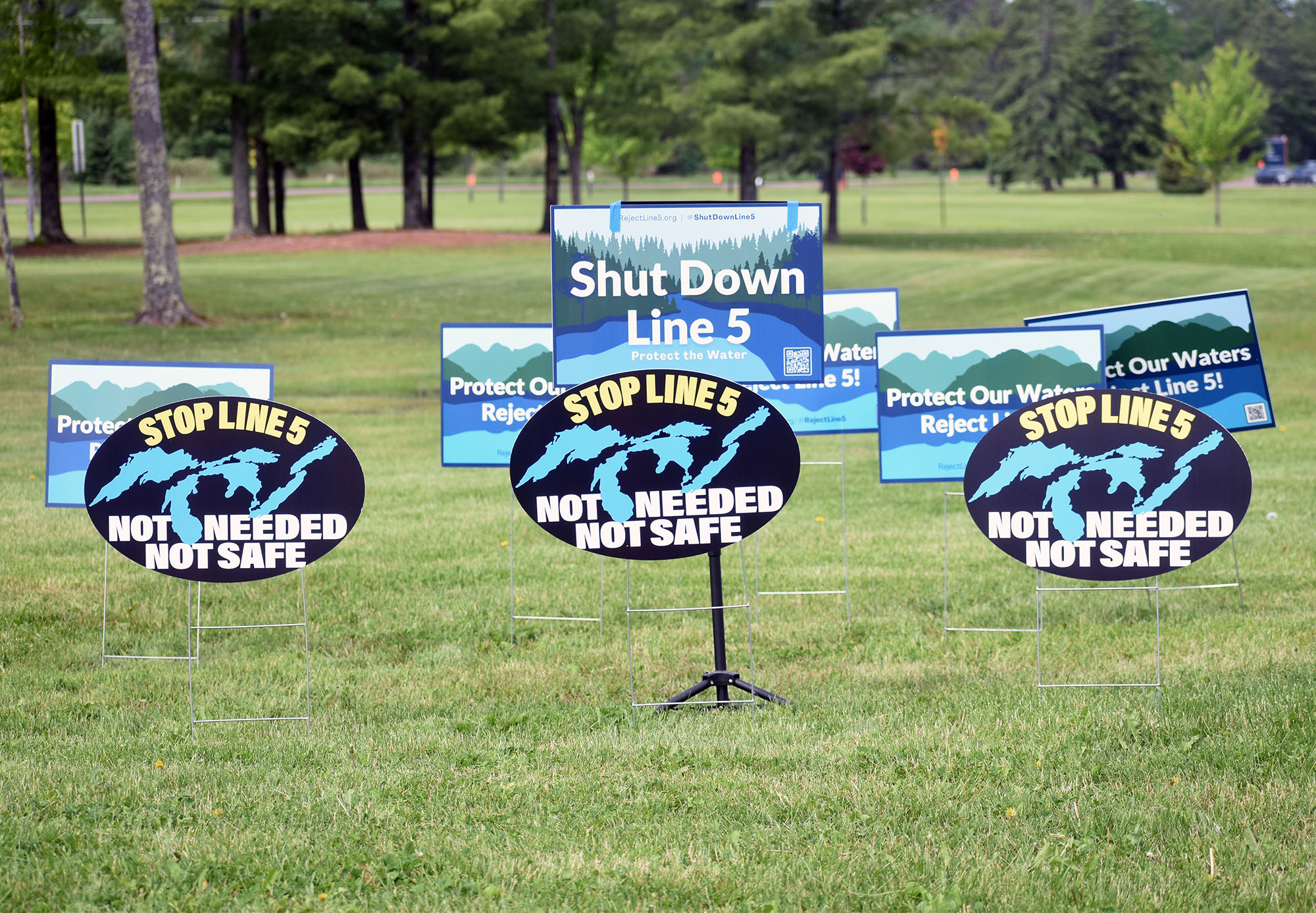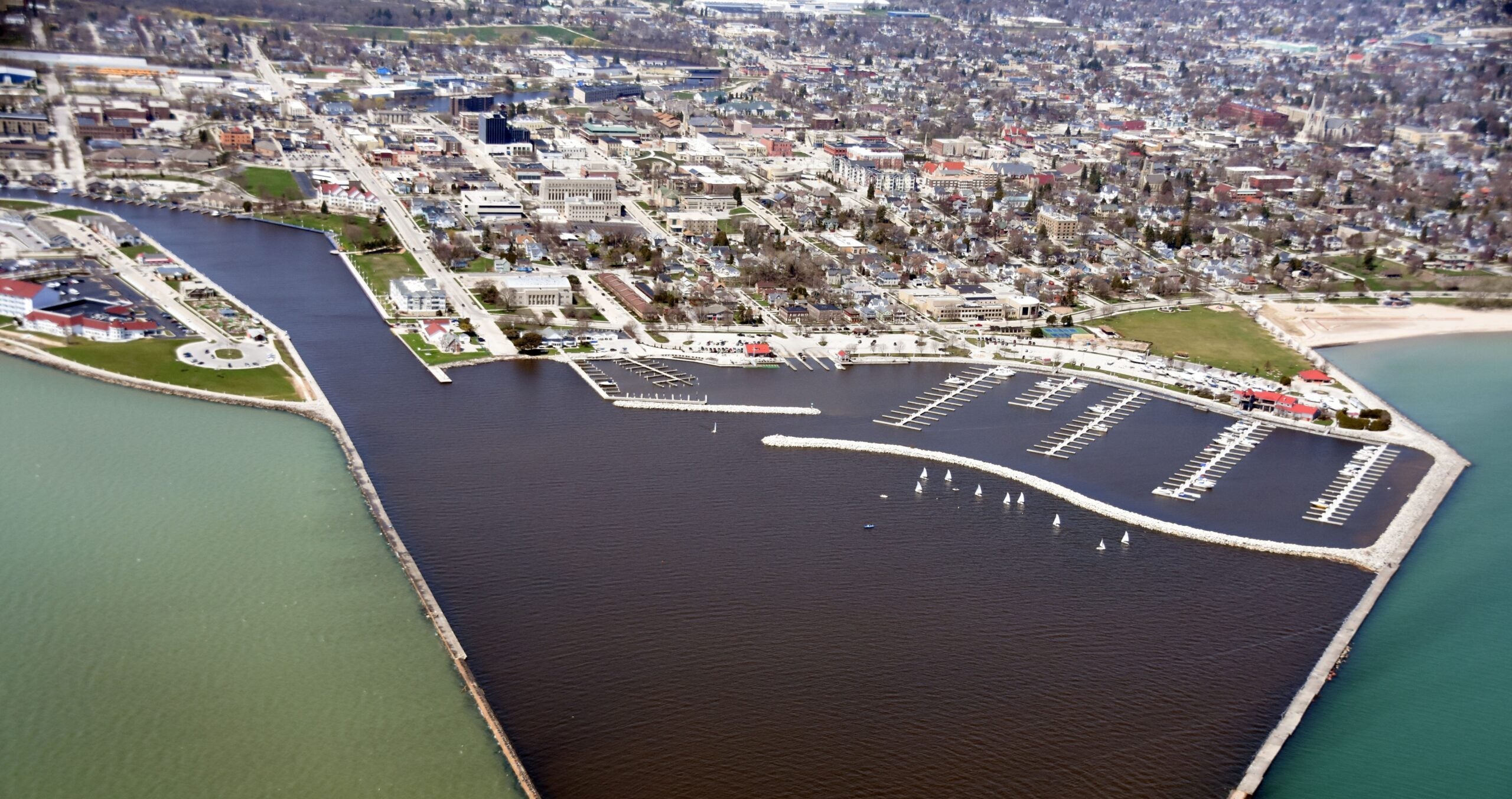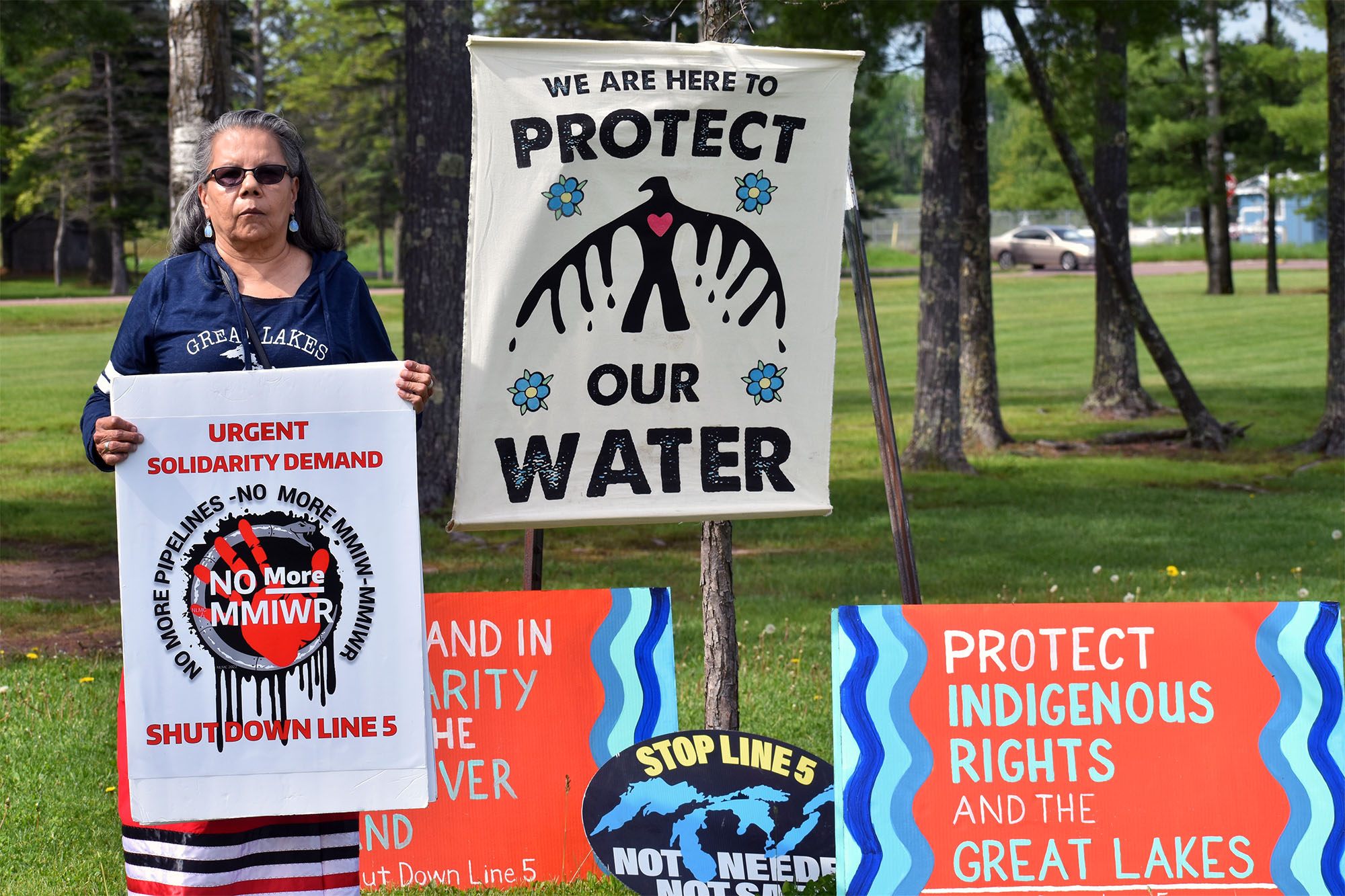Native American tribes in Wisconsin are working to generate more of their energy from renewable sources — and become independent of outside energy companies in the process.
Panelists representing three tribes spoke Tuesday night at the Wisconsin Energy Institute at the University of Wisconsin-Madison to highlight their sustainability efforts.
Dylan Jennings, who also goes by Bizhikiins, is a tribal council member for the Bad River Band of Lake Superior Chippewa. He said his tribe is working on a solar project to power its health and wellness center and its wastewater treatment facility.
Stay informed on the latest news
Sign up for WPR’s email newsletter.
But bigger environmental fights are taking up tribes’ time and energy, Jennings said. The Bad River Band is suing to shut down Enbridge’s Line 5, an oil and natural gas pipeline that runs through tribal land. Enbridge now wants to reroute Line 5 to go around the reservation.
“A lot of the environmental battles that another entity might not have the strength or the resources to pick up, many of our tribal communities are picking up those fights, and doing that on behalf of the area that we live in. And the state, quite frankly,” Jennings said.
Still, the Bad River Band is working to honor its obligation to protect the environment — in part by leaving swathes of land undeveloped, Jennings said.
The perennial challenge is funding, said Michael Troge, environmental project manager for the Oneida Nation. There’s not enough money to go around, and some tribes don’t have the resources to apply for the funding that does exist.
“We’re stuck. There’s a lot of tribes that … don’t have the grant writers, don’t have the folks in place to be able to put that kind of material together,” Troge said.
Tribal leaders listed environmental issues as a priority in at least the last two State of the Tribes addresses before the state Legislature. This year’s speaker, Forest County Potawatomi Community Chairman Ned Daniels Jr., thanked Gov. Tony Evers for establishing a task force on climate change, but said the state’s work to protect the environment isn’t done.
“There is more, always more, to be done to ensure there is clean air, water and soil for future generations,” Daniels said.
Charlie Opferman, who works on the Forest County Potawatomi Community’s sustainability efforts, said environmental issues have been a priority because they impact tribes directly.
He asked the audience of about 40 people if they liked to eat walleye. Several raised their hands. Opferman pointed out that, due to mercury in fish, the state has recommended limits on how many walleye people should eat: one serving per week for men, and one serving per month for children and women of childbearing age.
“That’s how Potawatomi tribal members got involved in this thing,” Opferman said. “You couldn’t take your grandchildren out, go fishing, and eat a mess of fish.”
Opferman said in an interview after the panel that the tribe’s goal is to generate all of its own energy.
“It’s part of the struggle that the Potawatomi and the rest of tribes continue to have, in terms of being able to manage their own destinies,” he said.
Wisconsin Public Radio, © Copyright 2025, Board of Regents of the University of Wisconsin System and Wisconsin Educational Communications Board.
